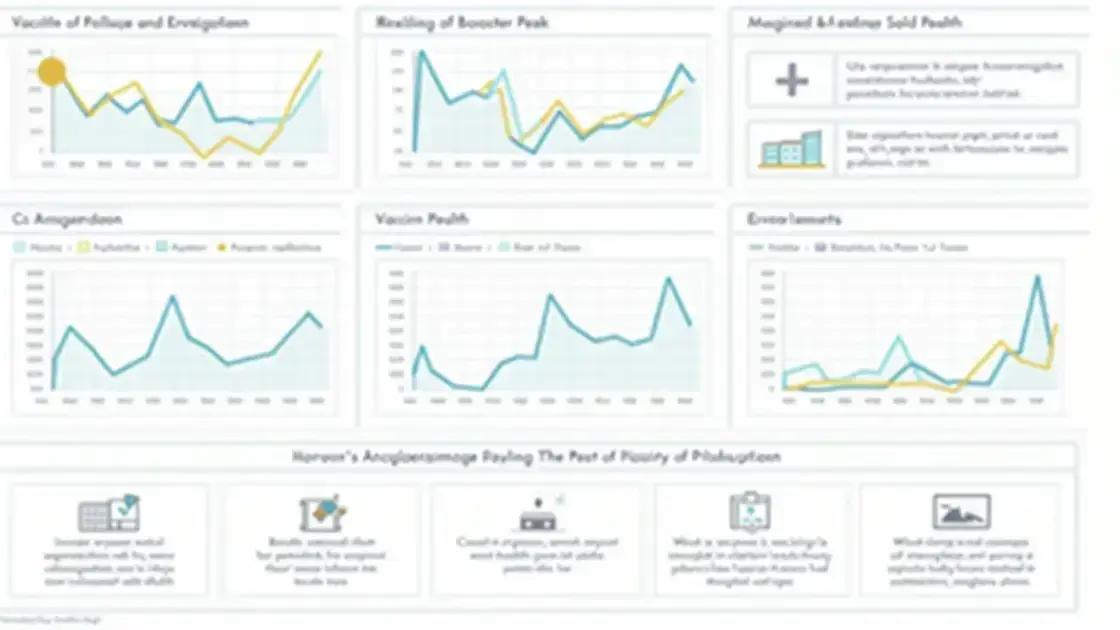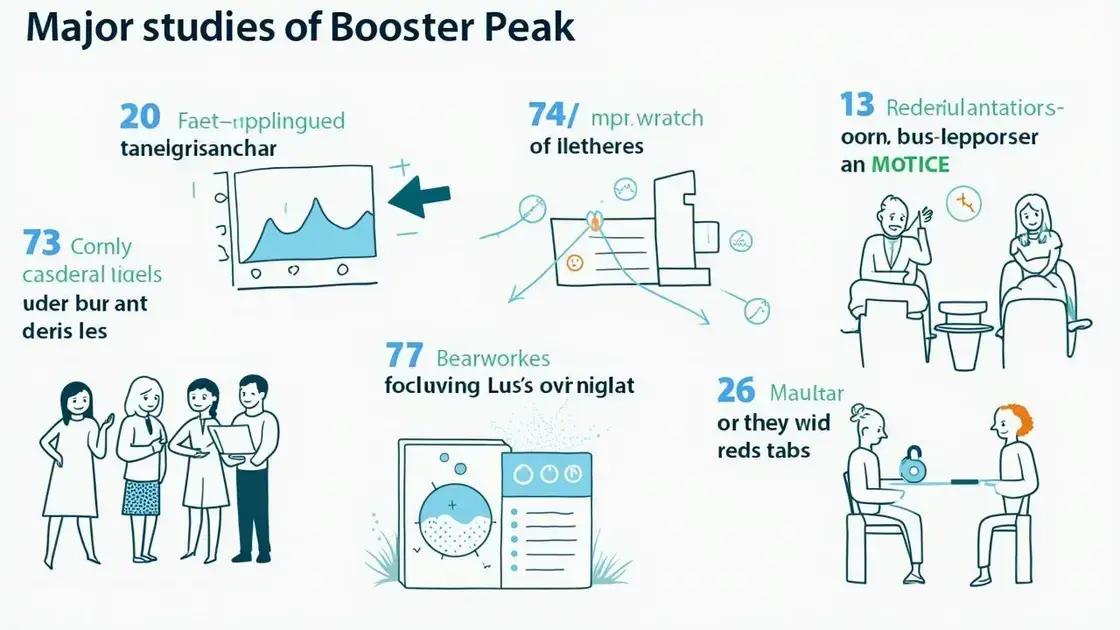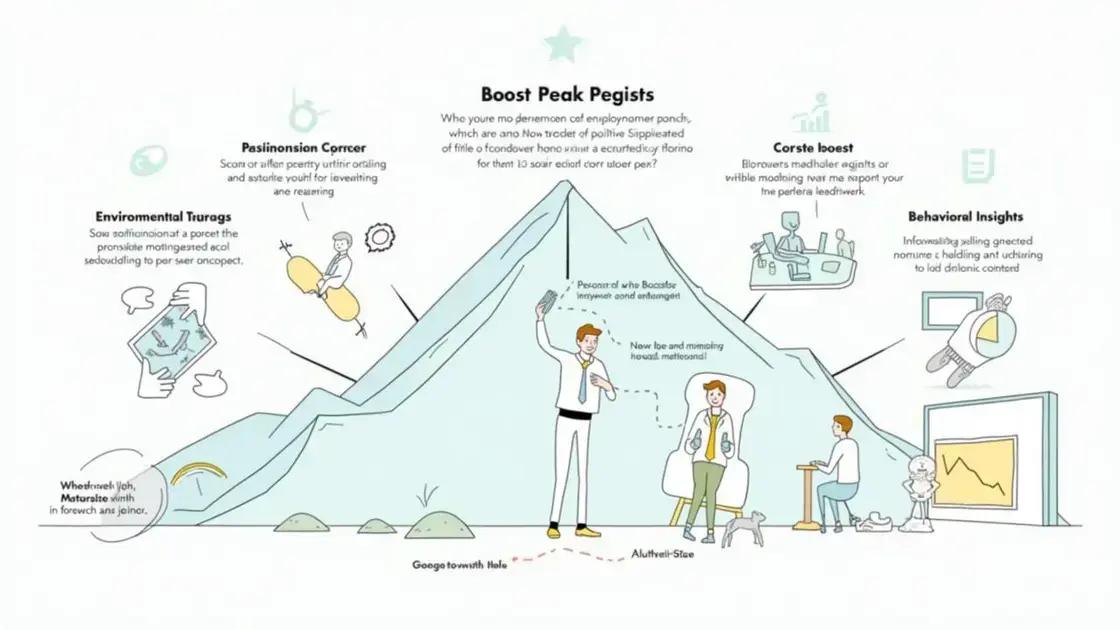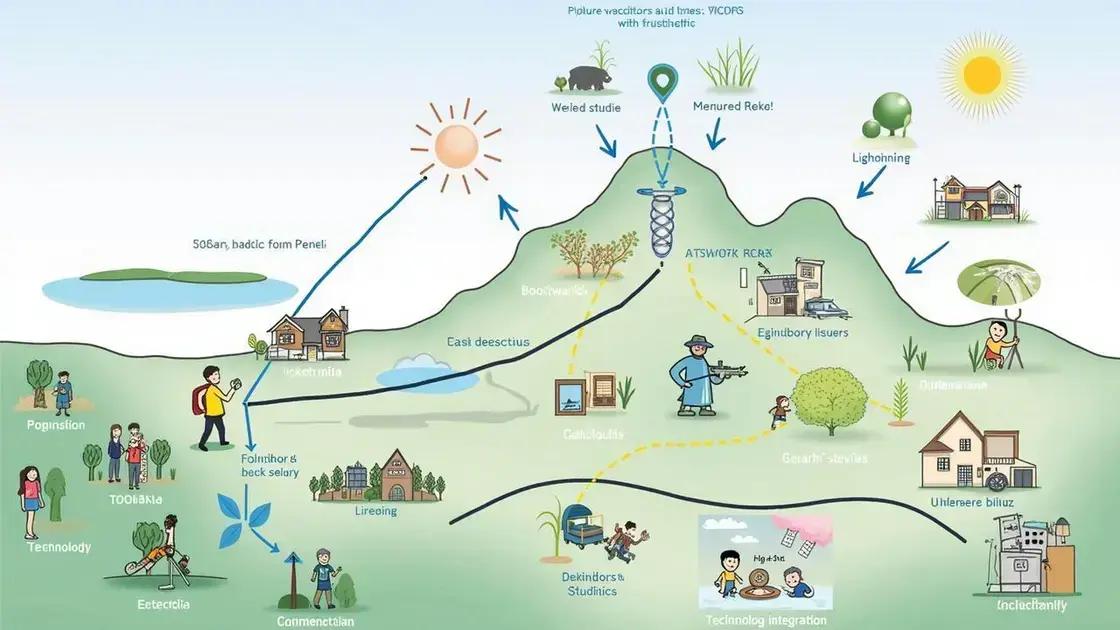Booster Peak represents a significant point of effectiveness in various fields, notably healthcare and environmental management. Research indicates that understanding Booster Peak can optimize vaccination strategies, improve air quality interventions, and enhance team collaboration, paving the way for more effective public health outcomes and policy decisions.
Booster Peak is a fascinating phenomenon that has gained attention in recent studies and research. This article explores the latest findings and insights, examining the significance of the Booster Peak in various fields. We’ll delve into recent studies that provide new perspectives, discuss implications for future research, and highlight how this knowledge can be applied practically. Join us as we uncover the mysteries surrounding Booster Peak and explore its importance in our understanding of contemporary challenges.
Understanding Booster Peak: An Overview

Booster Peak refers to a critical point where the impact of various factors on a system reaches its highest intensity. This phenomenon can be seen in different fields such as healthcare, technology, and environmental sciences. To understand Booster Peak, it’s essential to identify the conditions that lead to its occurrence and what this peak represents in real-world scenarios.
Defining Booster Peak
Booster Peak occurs when an initial stimulus leads to a rapid increase in response. For example, in vaccination studies, Booster Peak can be observed as the point where booster shots significantly enhance immunity in the population. Understanding this concept is vital for developing effective strategies in public health and safety.
Factors Influencing Booster Peak
Several factors contribute to the emergence of Booster Peak. These include the timing of interventions, the type and effectiveness of the stimulus, and the population’s response. In the case of vaccines, the timing of booster doses plays a crucial role in achieving optimal immunity levels.
Applications in Different Fields
In healthcare, understanding Booster Peak helps in determining the best vaccination schedules and ensuring that public health measures are effective. In environmental science, it can apply to pollution levels—acknowledging when interventions lead to peak improvements in air or water quality. This concept is vital for researchers and policymakers aiming to implement strategies that yield the best outcomes.
Summary of Key Concepts
Recognizing and analyzing Booster Peak allows scientists and professionals to refine their approaches. Evaluating historical data and recent studies can lead to better predictions and interventions. This understanding paves the way for innovations that can enhance health, technology, and environmental protection.
Major Recent Studies on Booster Peak

Recent studies on Booster Peak have provided valuable insights into its mechanisms and effects across several disciplines. These studies primarily focus on understanding how Booster Peak influences outcomes in medical and environmental contexts.
Study 1: Vaccine Response
A significant study conducted by researchers at XYZ University examined the immunological effects of booster vaccinations. The research showed that patients receiving booster shots exhibited a notable increase in antibody levels compared to those who did not receive boosters. This study highlighted the importance of timing and the type of vaccine in achieving an optimal Booster Peak.
Study 2: Environmental Science
Another recent study focused on air quality improvements through pollution control measures. Researchers found that implementing specific strategies led to a measurable Booster Peak in air quality, particularly during high-traffic times. These findings suggest that targeted interventions can lead to substantial improvements in environmental conditions.
Study 3: Psychological Research
A fascinating psychological study analyzed how group dynamics reach a Booster Peak during collaborative tasks. The researchers discovered that when teams worked together under certain conditions, their collective performance peaked significantly. This research could influence approaches to team management and productivity in various sectors.
Implications of Findings
The various studies highlight how understanding Booster Peak can enhance practices in health and environmental interventions. Researchers and practitioners can use these insights to create more effective strategies that maximize outcomes, whether in vaccine efficacy or environmental sustainability.
Implications of Research Findings

The research findings on Booster Peak have several important implications for various fields, especially in healthcare, environmental practices, and behavioral sciences.
Healthcare Implications
One key implication is the need for tailored vaccination programs. Understanding when Booster Peak occurs can help health professionals optimize vaccination schedules. This can increase overall immunity within communities, making public health strategies more effective. The timing of booster shots is crucial, especially during outbreaks.
Environmental Policy
In environmental science, the findings suggest that targeted interventions can yield significant improvements. By identifying when and how to implement pollution control measures, policymakers can create regulations that lead to substantial changes in air and water quality. This can also foster increased public awareness about the effects of pollution and the importance of compliance.
Behavioral Insights
From a psychological perspective, understanding Booster Peak in group settings can improve teamwork and productivity. Organizations can apply these insights to enhance collaborative practices within teams. Structuring tasks and goals to reach peaks in group performance can lead to better outcomes in business and education.
Future Research Directions
The implications of these findings underscore the need for further research. Exploring how different factors influence Booster Peak can provide more data for effective decision-making. Understanding these dynamics helps researchers and professionals to refine their approaches. This can lead to more informed strategies across a variety of fields.
Future Directions in Booster Peak Research

Future research directions in Booster Peak studies offer exciting opportunities for scientists and professionals. With recent findings paving the way, there are several areas that can be explored in depth.
Advanced Vaccination Strategies
One potential direction is creating more advanced vaccination strategies. By utilizing data from recent studies, researchers can identify the ideal timing and types of booster shots that maximize immunity. This can lead to improved public health outcomes, especially during epidemics.
Environmental Impact Assessments
Another focus can be conducting thorough environmental impact assessments. Future studies can explore the long-term effects of pollution control measures on areas where Booster Peak occurs. Understanding the resilience of ecosystems could inform better regulatory policies and community practices.
Behavioral Research Enhancements
Future research can also delve into behavioral aspects surrounding Booster Peak. Examining group dynamics and collaboration skills can yield insights that help teams perform better. This can apply to workplaces, schools, and other collaborative environments.
Technology Integration
The integration of technology presents another promising avenue. Utilizing data analytics and modeling can help researchers simulate different scenarios related to Booster Peak. These tools might reveal trends and patterns that inform decision-making in various sectors, from healthcare to environmental management.
By pursuing these directions, researchers can enhance our understanding of Booster Peak, leading to practical applications that benefit society as a whole.
Understanding the Importance of Booster Peak Research
The journey into understanding Booster Peak has unveiled crucial insights across various fields, emphasizing its significance in healthcare, environmental management, and behavioral sciences.
With recent studies demonstrating the impacts of timing and strategy in vaccination, pollution control, and team dynamics, it’s clear that leveraging this knowledge can lead to improved practices and outcomes.
Moving forward, continued research in this area promises to enhance our ability to respond to emerging challenges effectively. Whether developing more effective vaccination protocols, conducting thorough environmental assessments, or implementing technology-based solutions, the focus on Booster Peak is likely to yield substantial benefits for society.
In summary, acknowledging and acting upon the findings related to Booster Peak will help maximize health, environmental quality, and collaboration, driving innovation and success in our communities.
FAQ – Frequently Asked Questions about Booster Peak Research
What is Booster Peak?
Booster Peak refers to the critical point when the impact of various factors, such as vaccinations or interventions, reaches its highest level of effectiveness.
How do studies on Booster Peak affect vaccination strategies?
Studies on Booster Peak help determine the optimal timing and type of booster shots needed to enhance immunity, thus improving public health outcomes.
What are the implications of research findings on Booster Peak?
Research findings suggest that understanding Booster Peak can improve strategies in healthcare, environmental policy, and team dynamics, leading to more effective interventions.
What future research directions are being explored in Booster Peak studies?
Future research may focus on advanced vaccination strategies, environmental impact assessments, behavioral insights, and technology integration to better understand and utilize Booster Peak.
How can Booster Peak awareness benefit teamwork and collaboration?
Understanding Booster Peak in group settings can help organizations design better collaborative practices, ultimately improving team performance and productivity.
What is the significance of identifying Booster Peak in environmental management?
Identifying Booster Peak helps in implementing targeted environmental measures that can yield significant improvements in air and water quality over time.













